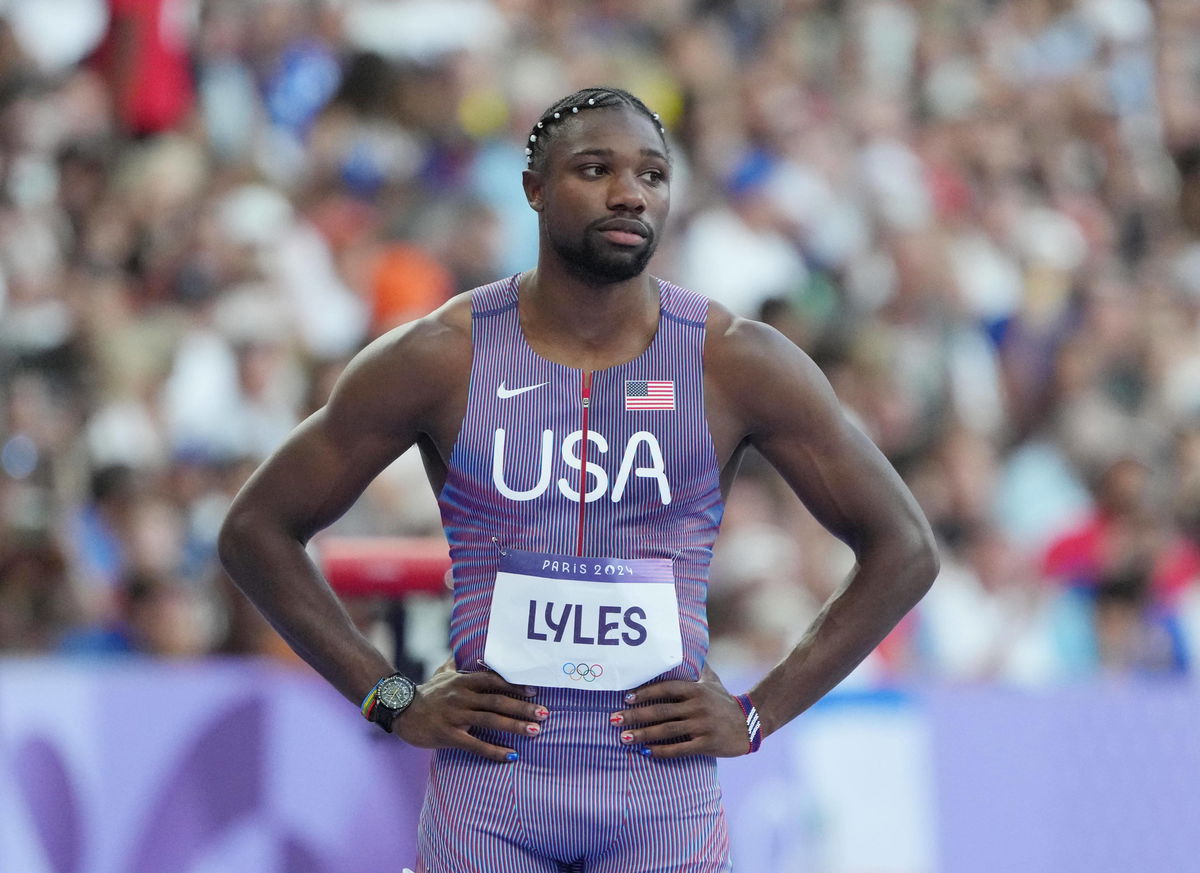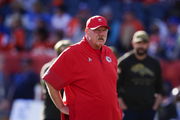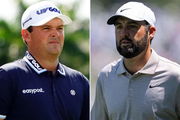
Imago
Olympics: Athletics-Evening Session Aug 5, 2024 Saint-Denis, FRANCE Noah Lyles USA before the men s 200m round 1 heats during the Paris 2024 Olympic Summer Games at Stade de France. Paris Stade de France FRANCE, EDITORIAL USE ONLY PUBLICATIONxINxGERxSUIxAUTxONLY Copyright: xKirbyxLeex 20240805_jel_al2_5259

Imago
Olympics: Athletics-Evening Session Aug 5, 2024 Saint-Denis, FRANCE Noah Lyles USA before the men s 200m round 1 heats during the Paris 2024 Olympic Summer Games at Stade de France. Paris Stade de France FRANCE, EDITORIAL USE ONLY PUBLICATIONxINxGERxSUIxAUTxONLY Copyright: xKirbyxLeex 20240805_jel_al2_5259
As the sun dipped behind the Eiffel Tower and the U.S. Olympic team cruised down the Seine River on a grand boat, cameras focused on a familiar face at the bow. Noah Lyles, draped in red, white, and blue, looked into the lens with the swagger only he could carry. “What’s up, Team USA? This is Noah Lyles, fastest man in the world, and we are out here in Paris getting ready to go on our tour of the world, introducing America to the Olympics,” he proclaimed. It was bold. It was pure Noah. But it was also the spark that ignited a months-long debate.
Watch What’s Trending Now!
Three days later, Lyles sat before a room of reporters at an Olympic news conference. The buzz hadn’t died down—it had grown louder. He leaned back in his chair, grinned, and with his trademark confidence said, “It’s me. It’s always going to be me.” And for a moment, no one could argue. Days later, Lyles delivered on his word. Under the glaring lights of Stade de France, he surged ahead of Jamaica’s Kishane Thompson in a thrilling 100m final to become the Olympic champion. The moment was electric. He had claimed the sport’s ultimate crown—Olympic gold—and with it, what many believed was the title of the fastest man alive. But time has a way of shifting narratives.
Fast forward to May 20, 2025. The glow of Olympic glory has begun to dim, replaced by new headlines and fresh performances. On a YouTube podcast hosted by Coach Rob, track experts Anderson Emerole and Anson Henry gathered to discuss a once-clear, now-muddied question: Who is truly the fastest man in the world? Anderson was the first to unpack the controversy. “Last year, Noah Lyles won the gold medal at the Olympics. Kishane Thompson had the world lead in the 100 meters. Akani Simbine, on average, did the best throughout the season,” he explained. “We’re looking at almost like three different things that were achieved throughout 2024, at least. And that’s something that should be distinctly awarded in some way, right? [It] should be recognized in some way.” His point was simple but powerful. The sport had become too one-dimensional in its praise. There was no award for consistency, no honor for the world leader. Just one title and one race to define it.
ADVERTISEMENT

ADVERTISEMENT
It was a critique aimed directly at the sport’s structure, but also at Lyles himself. So far in 2025, he’s been mostly silent in the 100m, choosing to focus on training while others made statements on the track. Enter Akani Simbine: The “Sub-10 King”.
While Noah Lyles kept quiet, one man roared louder with each meet: South Africa’s Akani Simbine. In April, under the bright skies of Botswana, Simbine sprinted to a 9.90-second victory—clean, powerful, and historic. It marked the 11th straight season in which he had run under 10 seconds in the 100m, breaking Usain Bolt’s previous record of ten. That performance didn’t just win him a race. It earned him a nickname: The Sub-10 King. So far in 2025, Simbine remains undefeated in the 100m. He hasn’t needed to talk. The times speak for him. And in this new chapter of sprinting, consistency might be just as powerful as gold. And what about Noah? Does he feel concerned about things in the track and field sports in his absence?
ADVERTISEMENT
Noah Lyles is counting on his chances
Piedmont Park was buzzing on May 17. The adidas Atlanta City Games had rolled into town, bringing with it elite talent, serious speed, and one anticipated name in giant capital letters: NOAH LYLES.
Fans came ready for fireworks in the men’s 150m, eyes fixed on the finish line, waiting for the reigning Olympic champ to do what he does best—put on a show. But this time, the track didn’t get the performance. Noah Lyles didn’t run. Still, he owned the day.
ADVERTISEMENT
Top Stories
Drake Maye Reveals Shoulder Injury Update as Patriots QB Announces News On Super Bowl Availability

Dak Prescott Officially Puts Jerry Jones & Cowboys on Notice, Threatens Action on George Pickens Contract

NFL Sends Muted Warning to Bad Bunny Before Super Bowl Halftime Performance Amid ICE Controversy

Rob Gronkowski Demands Severe Punishment for Andy Reid After Bill Belichick Snub

Travis Kelce Makes Sporting Return as Teammate Gives Update on Chiefs TE’s Retirement

PGA Tour Split Into Two as Scottie Scheffler Confirms Stance on Patrick Reed’s Return

Decked out in streetwear swagger and armed with that trademark megawatt smile, Lyles turned his absence into energy. He danced with performers, threw up poses with fans, and had the whole park vibing like it was a block party instead of a track meet. And then, with the same openness that’s made him one of the sport’s most relatable stars, he told everyone why the race wasn’t happening. “Unfortunately, I just got a really tight ankle,” he said. “It kind of surprisingly came around two weeks ago… We came up here thinking anything could happen; it could loosen up. But we’re just like, you know what—it’s not getting better. It’s just playing safe. I got two bars in the World Championship. There’s no need to rush anything.”

ADVERTISEMENT
Translation? This wasn’t panic. This was poise. It wasn’t a red flag. It was a veteran move from a man who knows exactly when to hit the gas—and when to ease off. And to those wondering if this might mess up his season? Lyles didn’t hesitate: “No, I don’t believe it should,” he said calmly. “Just a little something. Hoping that with time it’ll go away, and we’ll be right back to business as usual.” Well, fans didn’t get their 150m showdown in Atlanta.
But they got something just as powerful: a reminder that Noah Lyles is more than just a sprinter. He’s a performer. A presence. A professional who’s got his eyes on the real prize—the World Athletics Championships in Tokyo this September. So, mark those dates: September 13–21. Because when the lights are the brightest, Noah Lyles never misses. He may have skipped the race in Piedmont Park, but rest assured—he’s not skipping a beat.
ADVERTISEMENT
ADVERTISEMENT
ADVERTISEMENT
ADVERTISEMENT